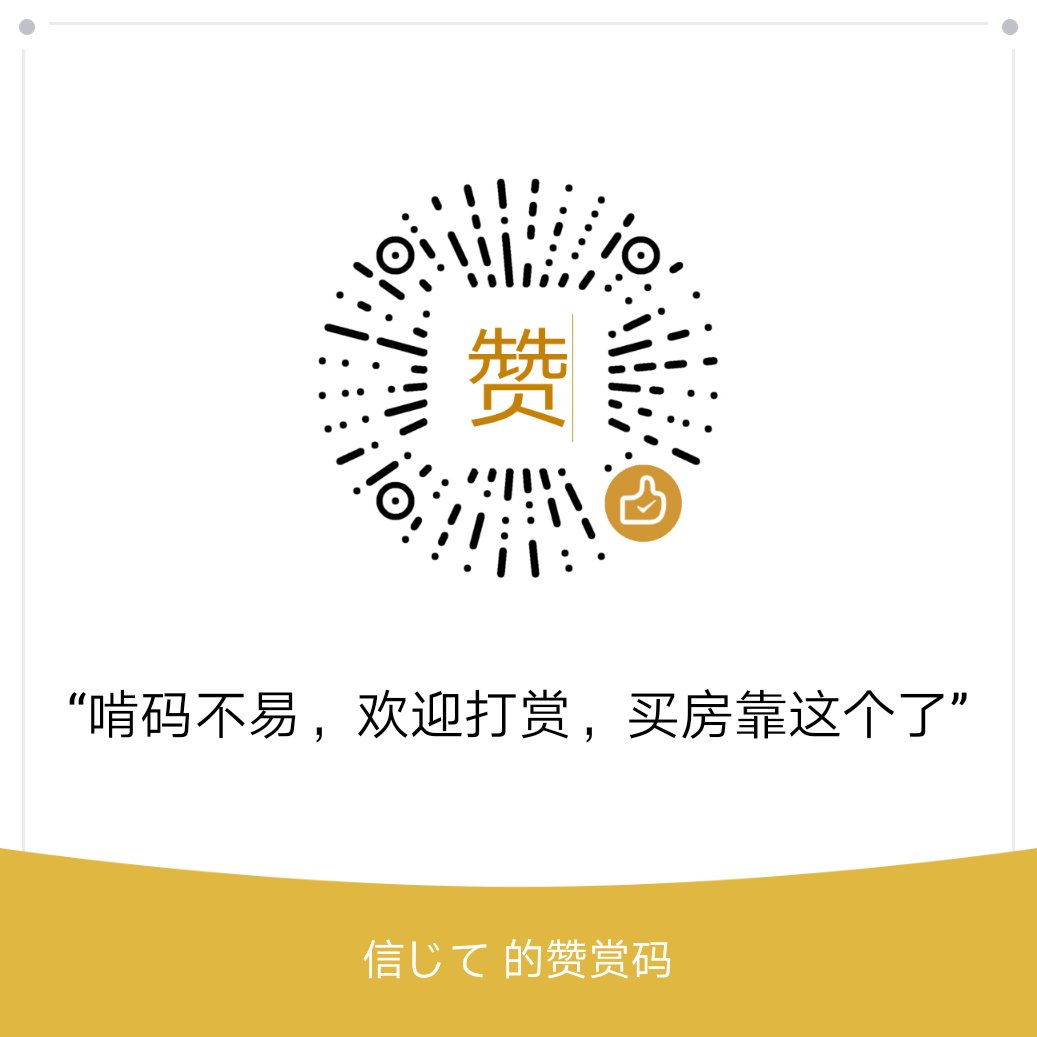most fields策略以及与best fields策略
best-fields策略,主要是说将某一个field匹配尽可能多的关键词的doc优先返回回来
most-fields策略,主要是说尽可能返回更多field匹配到某个关键词的doc,优先返回回来
POST /forum/_mapping/article
{
“properties”: {
“sub_title”: {
“type”: “string”,
“analyzer”: “english”,
“fields”: {
“std”: {
“type”: “string”,
“analyzer”: “standard”
}
}
}
}
}
POST /forum/article/_bulk
{ “update”: { “_id”: “1”} }
{ “doc” : {“sub_title” : “learning more courses”} }
{ “update”: { “_id”: “2”} }
{ “doc” : {“sub_title” : “learned a lot of course”} }
{ “update”: { “_id”: “3”} }
{ “doc” : {“sub_title” : “we have a lot of fun”} }
{ “update”: { “_id”: “4”} }
{ “doc” : {“sub_title” : “both of them are good”} }
{ “update”: { “_id”: “5”} }
{ “doc” : {“sub_title” : “haha, hello world”} }
GET /forum/article/_search
{
“query”: {
“match”: {
“sub_title”: “learning courses”
}
}
}
{
“took”: 3,
“timed_out”: false,
“_shards”: {
“total”: 5,
“successful”: 5,
“failed”: 0
},
“hits”: {
“total”: 2,
“max_score”: 1.219939,
“hits”: [
{
“_index”: “forum”,
“_type”: “article”,
“_id”: “2”,
“_score”: 1.219939,
“_source”: {
“articleID”: “KDKE-B-9947-#kL5”,
“userID”: 1,
“hidden”: false,
“postDate”: “2017-01-02”,
“tag”: [
“java”
],
“tag_cnt”: 1,
“view_cnt”: 50,
“title”: “this is java blog”,
“content”: “i think java is the best programming language”,
“sub_title”: “learned a lot of course”
}
},
{
“_index”: “forum”,
“_type”: “article”,
“_id”: “1”,
“_score”: 0.5063205,
“_source”: {
“articleID”: “XHDK-A-1293-#fJ3”,
“userID”: 1,
“hidden”: false,
“postDate”: “2017-01-01”,
“tag”: [
“java”,
“hadoop”
],
“tag_cnt”: 2,
“view_cnt”: 30,
“title”: “this is java and elasticsearch blog”,
“content”: “i like to write best elasticsearch article”,
“sub_title”: “learning more courses”
}
}
]
}
}
sub_title用的是enligsh analyzer,还原了单词
sub_titile: learning coureses –> learn course
{ “doc” : {“sub_title” : “learned a lot of course”} },就排在了{ “doc” : {“sub_title” : “learning more courses”} }的前面
GET /forum/article/_search
{
“query”: {
“match”: {
“sub_title”: “learning courses”
}
}
}
使用most fields策略,
GET /forum/article/_search
{
“query”: {
“multi_match”: {
“query”: “learning courses”,
“type”: “most_fields”,
“fields”: [ “sub_title”, “sub_title.std” ]
}
}
}
learning courses得分变高了
{
“took”: 2,
“timed_out”: false,
“_shards”: {
“total”: 5,
“successful”: 5,
“failed”: 0
},
“hits”: {
“total”: 2,
“max_score”: 1.219939,
“hits”: [
{
“_index”: “forum”,
“_type”: “article”,
“_id”: “2”,
“_score”: 1.219939,
“_source”: {
“articleID”: “KDKE-B-9947-#kL5”,
“userID”: 1,
“hidden”: false,
“postDate”: “2017-01-02”,
“tag”: [
“java”
],
“tag_cnt”: 1,
“view_cnt”: 50,
“title”: “this is java blog”,
“content”: “i think java is the best programming language”,
“sub_title”: “learned a lot of course”
}
},
{
“_index”: “forum”,
“_type”: “article”,
“_id”: “1”,
“_score”: 1.012641,
“_source”: {
“articleID”: “XHDK-A-1293-#fJ3”,
“userID”: 1,
“hidden”: false,
“postDate”: “2017-01-01”,
“tag”: [
“java”,
“hadoop”
],
“tag_cnt”: 2,
“view_cnt”: 30,
“title”: “this is java and elasticsearch blog”,
“content”: “i like to write best elasticsearch article”,
“sub_title”: “learning more courses”
}
}
]
}
}
与best_fields的区别
(1)best_fields,是对多个field进行搜索,挑选某个field匹配度最高的那个分数,同时在多个query最高分相同的情况下,在一定程度上考虑其他query的分数。简单来说,你对多个field进行搜索,就想搜索到某一个field尽可能包含更多关键字的数据
优点:通过best_fields策略,以及综合考虑其他field,还有minimum_should_match支持,可以尽可能精准地将匹配的结果推送到最前面
缺点:除了那些精准匹配的结果,其他差不多大的结果,排序结果不是太均匀,没有什么区分度
实际的例子:百度之类的搜索引擎,最匹配的到最前面,但是其他的就没什么区分度了
(2)most_fields,综合多个field一起进行搜索,尽可能多地让所有field的query参与到总分数的计算中来,此时就会是个大杂烩,出现类似best_fields案例最开始的那个结果,结果不一定精准,某一个document的一个field包含更多的关键字,但是因为其他document有更多field匹配到了,所以排在了前面;所以需要建立类似sub_title.std这样的field,尽可能让某一个field精准匹配query string,贡献更高的分数,将更精准匹配的数据排到前面
优点:将尽可能匹配更多field的结果推送到最前面,整个排序结果是比较均匀的
缺点:可能那些精准匹配的结果,无法推送到最前面
实际的例子:wiki,明显的most_fields策略,搜索结果比较均匀,但是的确要翻好几页才能找到最匹配的结果
使用most_fields策略进行cross-fields search的弊端
什么是cross-fields:cross-fields搜索,一个唯一标识,跨了多个field。比如一个人,标识,是姓名;一个建筑,它的标识是地址。姓名可以散落在多个field中,比如first_name和last_name中,地址可以散落在country,province,city中。跨多个field搜索一个标识,比如搜索一个人名,或者一个地址,就是cross-fields搜索初步来说,如果要实现,可能用most_fields比较合适。因为best_fields是优先搜索单个field最匹配的结果,cross-fields本身就不是一个field的问题了。
POST /forum/article/_bulk
{ “update”: { “_id”: “1”} }
{ “doc” : {“author_first_name” : “Peter”, “author_last_name” : “Smith”} }
{ “update”: { “_id”: “2”} }
{ “doc” : {“author_first_name” : “Smith”, “author_last_name” : “Williams”} }
{ “update”: { “_id”: “3”} }
{ “doc” : {“author_first_name” : “Jack”, “author_last_name” : “Ma”} }
{ “update”: { “_id”: “4”} }
{ “doc” : {“author_first_name” : “Robbin”, “author_last_name” : “Li”} }
{ “update”: { “_id”: “5”} }
{ “doc” : {“author_first_name” : “Tonny”, “author_last_name” : “Peter Smith”} }
GET /forum/article/_search
{
“query”: {
“multi_match”: {
“query”: “Peter Smith”,
“type”: “most_fields”,
“fields”: [ “author_first_name”, “author_last_name” ]
}
}
}
Peter Smith,匹配author_first_name,匹配到了Smith,这时候它的分数很高,为什么啊???
因为IDF分数高,IDF分数要高,那么这个匹配到的term(Smith),在所有doc中的出现频率要低,author_first_name field中,Smith就出现过1次
Peter Smith这个人,doc 1,Smith在author_last_name中,但是author_last_name出现了两次Smith,所以导致doc 1的IDF分数较低
总结:most fields策略在进行cross-fields搜索情况下存在的问题:
问题1:只是找到尽可能多的field匹配的doc,而不是某个field完全匹配的doc
问题2:most_fields,没办法用minimum_should_match去掉长尾数据,就是匹配的特别少的结果
问题3:TF/IDF算法,比如Peter Smith和Smith Williams,搜索Peter Smith的时候,由于first_name中很少有Smith的,所以query在所有document中的频率很低,得到的分数很高,可能Smith Williams反而会排在Peter Smith前面
如何解决cross-fields问题:
使用copy to语法:将多个字段的值拷贝到一个字段中,并建立倒排索引;
定义新的字段,使用copy to语法:
PUT /forum/_mapping/article
{
“properties”: {
“new_author_first_name”: {
“type”: “string”,
“copy_to”: “new_author_full_name”
},
“new_author_last_name”: {
“type”: “string”,
“copy_to”: “new_author_full_name”
},
“new_author_full_name”: {
“type”: “string”
}
}
}
填充数据:
POST /forum/article/_bulk
{ “update”: { “_id”: “1”} }
{ “doc” : {“new_author_first_name” : “Peter”, “new_author_last_name” : “Smith”} } –> Peter Smith
{ “update”: { “_id”: “2”} }
{ “doc” : {“new_author_first_name” : “Smith”, “new_author_last_name” : “Williams”} } –> Smith Williams
{ “update”: { “_id”: “3”} }
{ “doc” : {“new_author_first_name” : “Jack”, “new_author_last_name” : “Ma”} } –> Jack Ma
{ “update”: { “_id”: “4”} }
{ “doc” : {“new_author_first_name” : “Robbin”, “new_author_last_name” : “Li”} } –> Robbin Li
{ “update”: { “_id”: “5”} }
{ “doc” : {“new_author_first_name” : “Tonny”, “new_author_last_name” : “Peter Smith”} } –> Tonny Peter Smith
获取数据验证:
GET /forum/article/_search
{
“query”: {
“match”: {
“new_author_full_name”: “Peter Smith”
}
}
}
问题1:只是找到尽可能多的field匹配的doc,而不是某个field完全匹配的doc –> 解决,最匹配的document被最先返回
问题2:most_fields,没办法用minimum_should_match去掉长尾数据,就是匹配的特别少的结果 –> 解决,可以使用minimum_should_match去掉长尾数据
问题3:TF/IDF算法,比如Peter Smith和Smith Williams,搜索Peter Smith的时候,由于first_name中很少有Smith的,所以query在所有document中的频率很低,得到的分数很高,可能Smith Williams反而会排在Peter Smith前面 –> 解决,Smith和Peter在一个field了,所以在所有document中出现的次数是均匀的,不会有极端的偏差
使用原生的cross-fields技术
“type”: “cross_fields”,
“operator”: “and”,
GET /forum/article/_search
{
“query”: {
“multi_match”: {
“query”: “Peter Smith”,
“type”: “cross_fields”,
“operator”: “and”,
“fields”: [“author_first_name”, “author_last_name”]
}
}
}
问题1:只是找到尽可能多的field匹配的doc,而不是某个field完全匹配的doc –> 解决,要求每个term都必须在任何一个field中出现
要求Peter必须在author_first_name或author_last_name中出现
要求Smith必须在author_first_name或author_last_name中出现
问题2:most_fields,没办法用minimum_should_match去掉长尾数据,就是匹配的特别少的结果 –> 解决,既然每个term都要求出现,长尾肯定被去除掉了;
问题3:TF/IDF算法,比如Peter Smith和Smith Williams,搜索Peter Smith的时候,由于first_name中很少有Smith的,所以query在所有document中的频率很低,得到的分数很高,可能Smith Williams反而会排在Peter Smith前面 –> 计算IDF的时候,将每个query在每个field中的IDF都取出来,取最小值,就不会出现极端情况下的极大值了
https://blog.csdn.net/hsj1213522415/article/details/96647974
